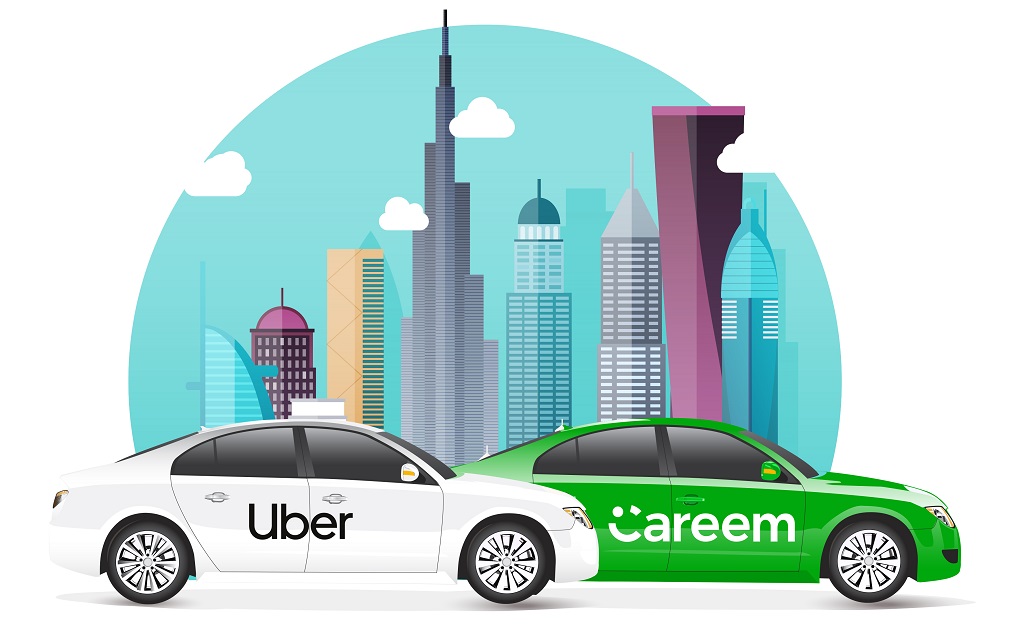On Tuesday, Uber announced that it acquired Careem, the sole competitor in the Middle East, for $ 3.1 billion. $ 1.4 billion will be paid in cash and Careem shareholders will receive $ 1.7 billion in Uber shares.
“Uber will have all its transport, delivery and payment operations across the Greater Middle East,” said Careem, adding that it will continue to operate its services and brands in the region independently even after the acquisition.
How will this transaction change our use of ride-hailing applications in the Middle East?
As a result, Uber monopolized the regional market and totally controls prices.
Second, Uber will be able to control the overall supply of services in the region. For example, it began to provide transport service through Uber Motorcycle Taxi after Careem launched services such as Careem Now, which handles food delivery, and Careem Bus.
Drivers in turn have lost a key opportunity to maneuver and benefit from the competition between the two companies. They will be entirely subordinated to the will of Uber with no possibility to provide their services outside Uber’s network unless they operate licensed taxi cabs.
شركة #أوبر الأميركية تشتري شركة #كريم… ماذا يعني ذلك لنا كمستهلكين؟
— SMEX (@SMEX) March 26, 2019
However, it is important to underline that Uber has a bad history of protecting users’ personal data, whether in terms of tracking users or in terms of sharing data with third party as stated by Mohammed Najem, executive director of SMEX.
Najem raised serious concerns about users’ data and integrity as he pointed to the fact that the Saudi investment fund – a governmental agency – has invested $3.5 billion in Uber.
Why is a global company like Uber looking to acquire a regional company like Careem?
Uber is located in more than 600 cities in 65 countries, with around 75 million passengers and 3 million drivers. Careem is only available in 100 cities in 15 countries with around 30 million passengers and 1 million drivers in the Middle East, North Africa and Asia, according to the company’s website.
Careem’s strength lies in penetrating regional markets with densely populated cities and poor public transportation network, like Beirut. Moreover, Careem has a good record of tailoring their services to respond to local needs such as the use of cash in transactions, as the use of credit cards is not widely spread in these markets, or the way the company dealt with their drivers.
Uber learned a lot from its Asian experience, as it was unable to compete with the Chinese giant Didi Chuxing, where it incurred annual losses of $1 billion, forcing it to exit the Chinese market and accept a share of no more than 10% of the Chinese market solely controlled by Didi.
In India, Uber faces fierce competition from an Indian company called Ola Cabs. The Indian company has been steadfast in the face of Uber for nearly 6 years and recently started to invest in foreign markets, succeeding in attracting large investments.
 Uber was seeking to acquire Careem before it turns into another Ola or Didi, which have challenged Uber, especially in the overall Asian market. The acquisition also coincides with Uber’s move to become a publicly trading company on the global stock market, although it still suffered losses of $891 million in the second quarter of 2018.
Uber was seeking to acquire Careem before it turns into another Ola or Didi, which have challenged Uber, especially in the overall Asian market. The acquisition also coincides with Uber’s move to become a publicly trading company on the global stock market, although it still suffered losses of $891 million in the second quarter of 2018.
Thus, the only way for Uber to achieve profitability may be the monopolization of the application based ride-sharing market worldwide. In other words, like other platforms (Facebook, Amazon, AirBnb), Uber cannot survive in a competitive environment. As it is known by now, in the platform capitalism the motto is “winner takes all.” Uber’s behavior has demonstrated its adherence to this motto on many occasions since its aggressive and somehow “illegal” practices against Lyft, its US- based rival.
Rabih Jamil is a researcher in the sociology of work and platform economy.



